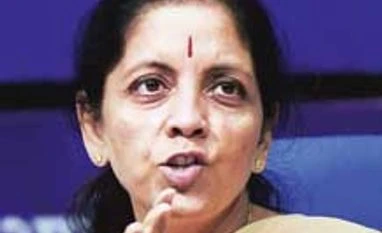The matter was recently discussed during a meeting of Commerce and Industry Minister Nirmala Sitharaman and Chinese Vice-Minister in Commerce Ministry Gao Yan. Both met on the sidelines of recently concluded Partnership Summit in Jaipur. The Chinese Vice-Minister said the Chinese government was keen on promoting imports into the country from India. "The minister (Sitharaman) expressed concern at the growing trade deficit which was $36 billion (in 2013-14). The minister said that India has global competitive advantage in niche engineering products, pharmaceuticals, cotton textiles, home furnishings, etc," a release said on Tuesday.
"However these products have a limited presence in the Chinese market due to various issues related to tariff barriers, regulatory and other complexities which impede India's exports," it said.
Also Read
"Also, Indian entities face several regulatory hurdles and other complex domestic certification requirements to bid for government tenders and government sponsored IT projects. Sitharaman drew attention to the many opportunities for Chinese investment in India," it said.
Sitharaman also met Malaysian Minister of International Trade and Industry Mustapa Mohamed, Ghana Minister for Trade and Industry Ekwow Spio-Garbrah, Bangladesh Commerce Minister Tofail Ahmed, Australian Minister for Trade and Investment Andrew Robb and discussed ways to boost economic ties.
Further, during her meeting with WTO Director General Roberto Azevedo, Sitharaman said that the mandate decided in the Doha Round of talks "should not be re-opened; nor should there be any cherry picking of issues from the Doha Development Agenda or introduction of new issues that only served the commercial interests of a few developed countries".
The Doha Round, started in 2001, was stuck due to differences between developed and developing economies on several issues including on agriculture. While, the round has yet not concluded developed nations always pick issues of their interest and try to build consensus on those.
Sitharaman also said that a permanent solution on the issue of public stockholding for food security purposes was critical and should be addressed on priority.
She emphasised that there should be no differentiation made amongst developing countries as regards commitments to be undertaken or in the matter of special and differential treatment for developing countries.
)